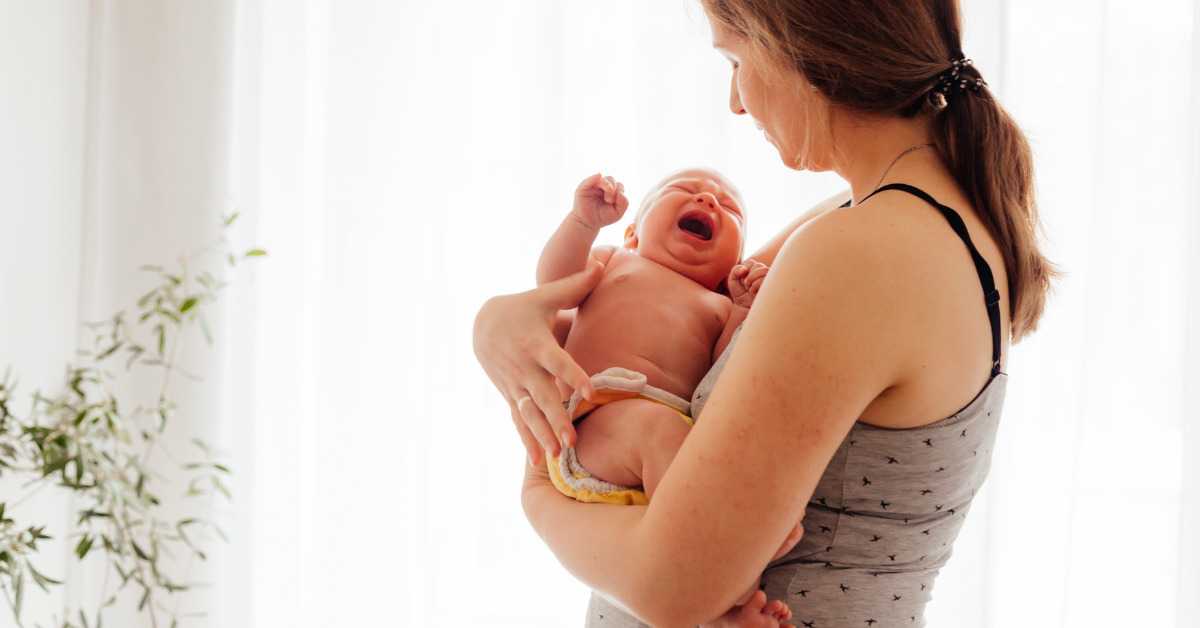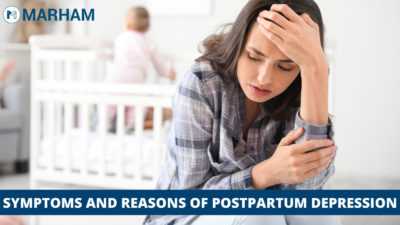The birth of your child can make you fearful and anxious. Childbirth can make you encounter a very unexpected situation such as postpartum depression. Most of the time, mothers have to see baby blues after their child’s birth. The most common symptoms in such situations are anxiety, restlessness, insomnia. Baby blues start in the first two to three days after delivery, continuing until two weeks.
But some mothers have to face a different kind of depression known as postpartum depression. It is a severe problem that psychologists say can happen after your child’s birth. Postpartum depression is not a weakness or illness, and it is a psychological reaction to your pregnancy. If you think you encounter such an event in life after delivery, contacting a psychologist before time can help you.
Symptoms Of Postpartum Depression
The symptoms of postpartum depression vary after the birth of a child, and they can go from mild to stronger. Before discussing this, let’s see the signs of baby blues.
“baby blues” refers to the sadness or moodiness that many women experience after giving birth, and they usually last about two weeks.
- Changes in mood
- Restlessness
- Sadness
- Irritation
- Hunger problems
- Insomnia


Now, let’s see in detail the symptoms of postpartum depression so that you may become able to identify between both of these states.
- Sad mood
- Sudden shifts in mood
- Unnecessary cry
- Getting difficulty in bonding with your child
- Getting detached from family and friends
- Feelings of hunger
- Insomnia
- Fatigue or lack of energy
- Lack of interest and enthusiasm in activities
- Anger
- Irritation
- Unnecessary energies
- Fear of not becoming a good mother
- Hopelessness
- Panic attacks or anxiety
In case of worst levels;
- Thoughts of giving harm to your child and yourself
- Passionate about your child
- Hallucinations or delusions
- Hyperactive body
Reasons For Postpartum Depression
The reasons for postpartum depression can be physical or emotional changes inside a mother. Let’s see them separately;

Physical Changes
After the birth of a child, the lack of estrogen or progesterone inside the mother can also cause postpartum depression. Plus, the hormones produced by thyroid glands can also become less inside the body. The lack of these hormones makes you feel more tired, lazy, and sad.
Emotional Problems
You may get postpartum depression because of emotional problems such as lack of sleep, unable to control your life due to the burden of a child. You may feel that your life is less attractive for you now. All these problems can get you into depression.
Diagnosis Of Postpartum Depression
When you talk with your doctor, it will diagnose that either you have baby blues or postpartum depression. It’s better to speak with a psychologist to get a diagnosis based on your feelings, thoughts, and physical changes.
Treatment of Postpartum Depression
The treatment of postpartum depression depends on the intensity or severity of your symptoms. If this is happening because of physical changes, you may see a doctor; he would help you through medications to normalize your hormones. Still, if it’s happening because of some abstract thoughts or thinking patterns, you need to see a psychologist. he will give you some therapies to feel better in the phase of postpartum depression.

The Bottom Line
Every mother has to face somehow the problem of postpartum depression. At the same time, you have to see the responsibility of your newborn. Therefore, you should take expert’s help. Don’t fight with yourself. Be patient, and things will be better soon.
FAQ’S
How long does it take to be considered postpartum?
The postpartum period is considered as the first six weeks after giving birth. Several changes occur for the mother during the postpartum period, including physical and emotional changes. This can be a trying time for the mother, especially her first child.
How do I deal with postpartum depression?
- Establish a strong bond with your child.
- Look after yourself.
- Reintroduce exercise gradually.
- Create a support network.
- Experiment with psychotherapy and medication.
What does “baby blues” mean?
Baby blues are sad feelings that you may experience in the first few days after having a baby. Four out of every five new parents (80%) experience the baby blues. It can affect new parents of any race, age, income level, culture, or level of education. You are not to blame for your feelings.
What is the most critical postpartum period?
The acute phase of the postpartum period lasts 6 to 12 hours after childbirth. Nurses or midwives usually monitor the mother during this time because complications can occur. Postpartum bleeding is the most serious health risk during the acute phase.
Book an appointment now to answer all your queries. You can book an appointment with the top psychologists in Pakistan through Marham by calling at Marham helpline: 0311-1222398 or by online booking facility through the website or Marham mobile app.
Can’t Find The App?
Android Users:
https://play.google.com/store/apps/details?id=controllers.marham.marhammed&hl=en
Drop a review for us at Playstore if you’ve had a good experience!
iPhone Users:
https://apps.apple.com/pk/app/marham-find-a-doctor/id1095243102
Stay Home. Stay Safe!

